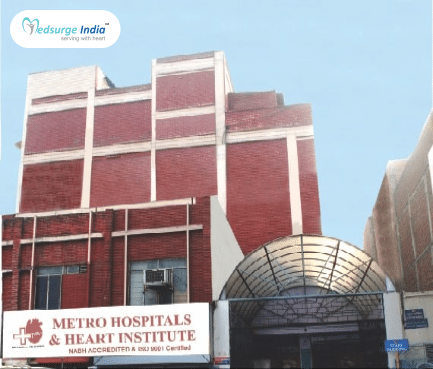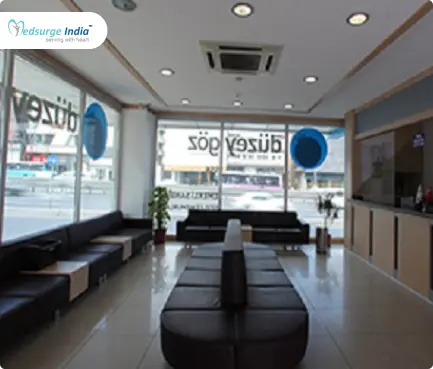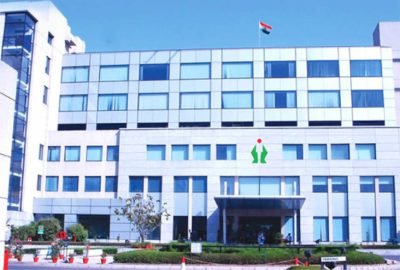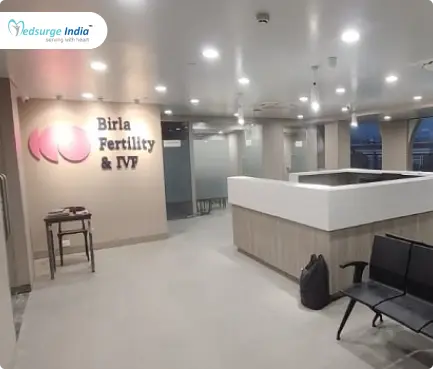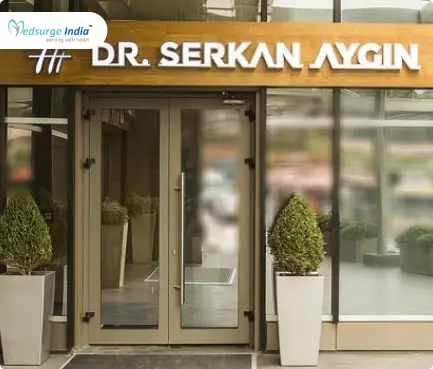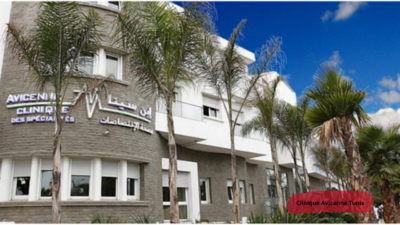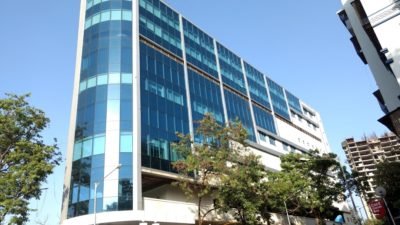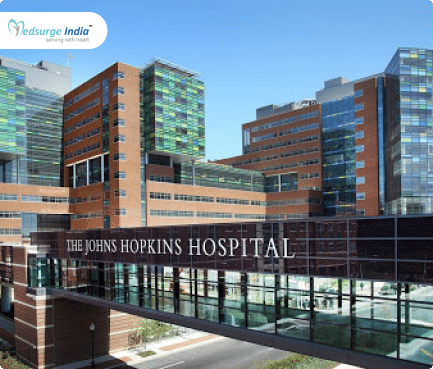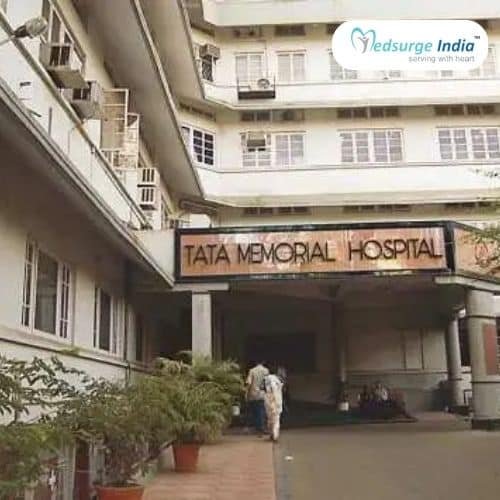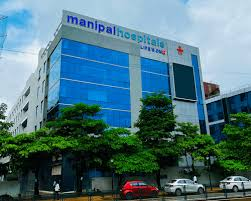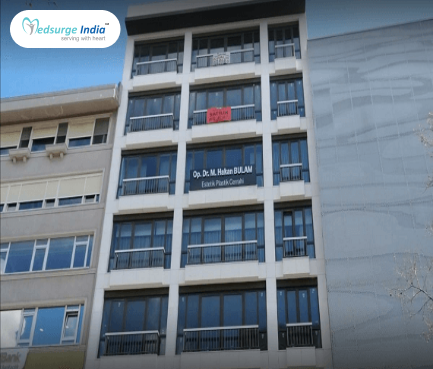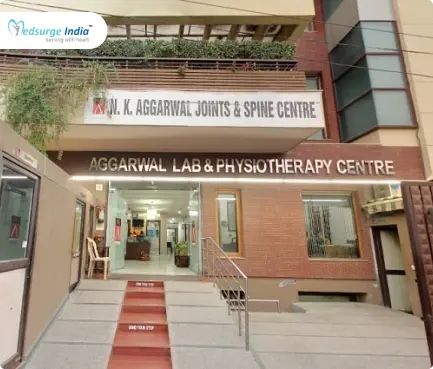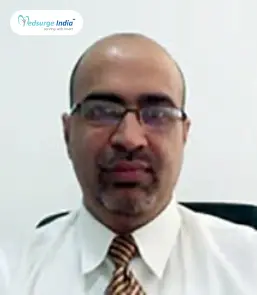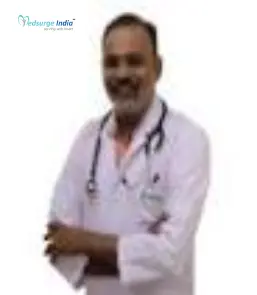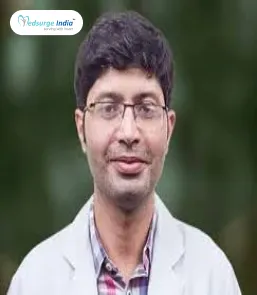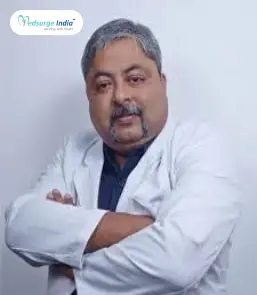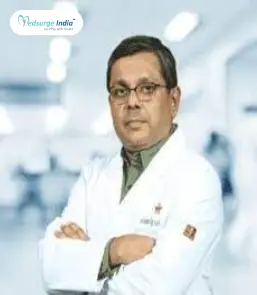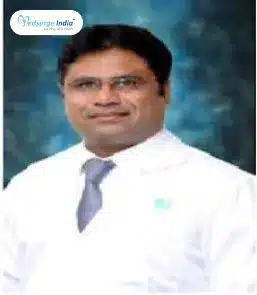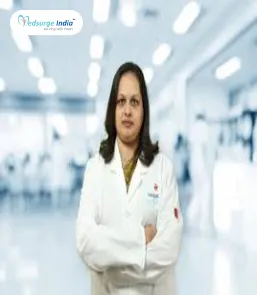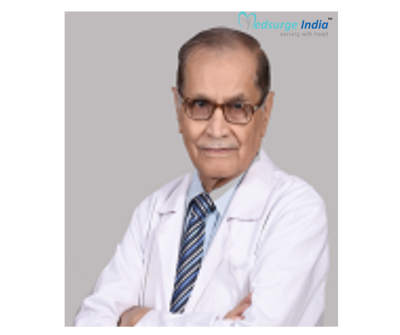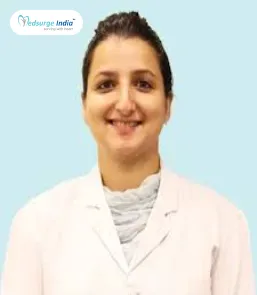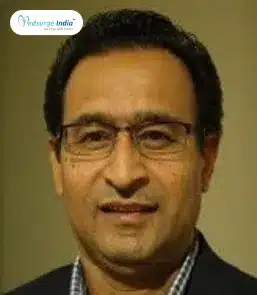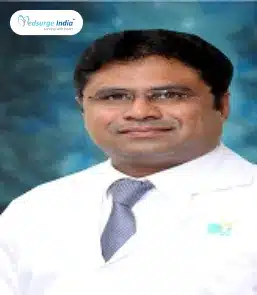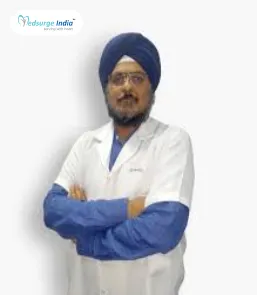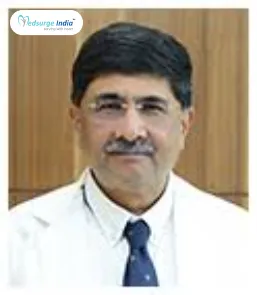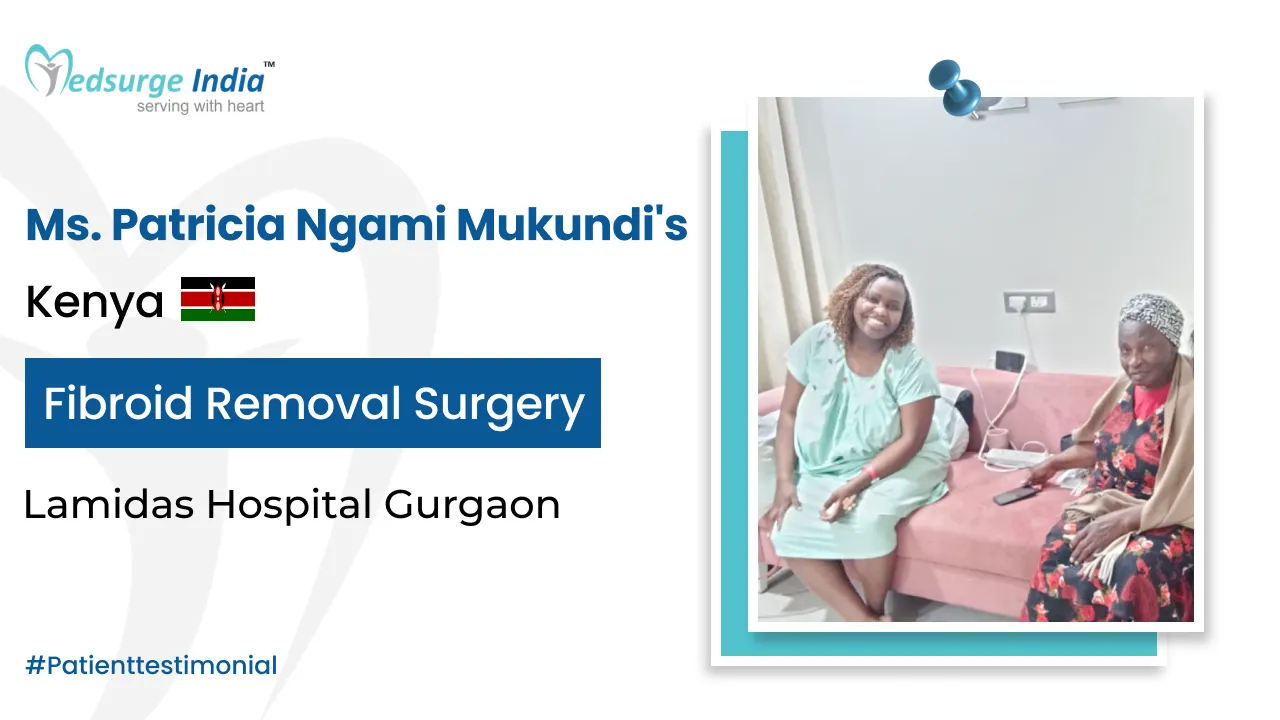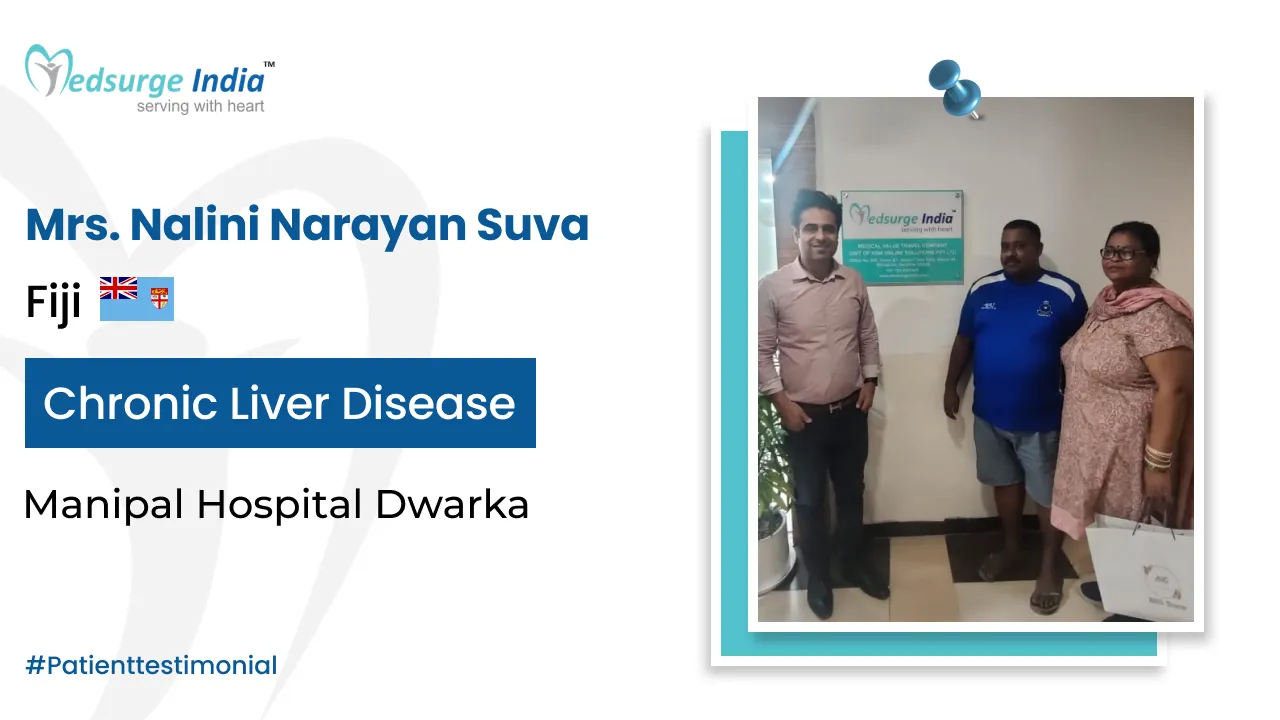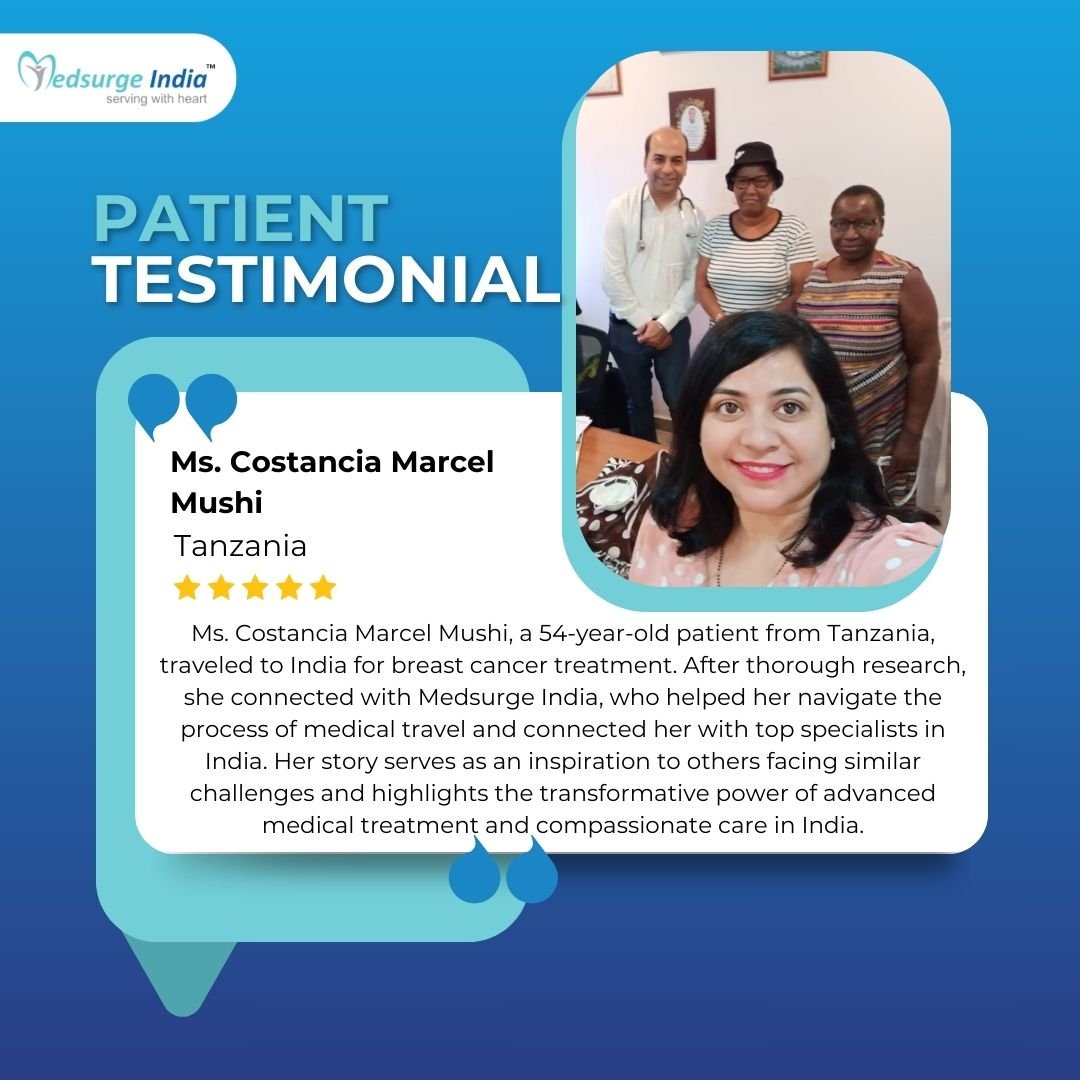
A tracheostomy is a surgical procedure to make a neck incision through which a tube can be inserted into the windpipe. This method could be either transitory or permanent. In order to create a direct airway in the trachea during a tracheostomy, the surgeon creates an incision on the front of the neck. In order to allow air to reach the lungs, the surgeon now makes a cut in the neck below the vocal cords and inserts a tube through it. For tracheostomy surgery in India, an ENT specialist who has expertise in performing surgical procedures is the right doctor to consult.
The tracheostomy surgery cost in India is quite less compared to other developed countries. The patient must spend 7 days in the hospital and another 45 days recovering outside of it. The patient’s diagnosis and the facilities they choose will influence the overall cost of the treatment.
Helpful – Lung Cancer Treatment Cost In India
What Is Tracheostomy?
A tracheostomy is an opening through the neck into the trachea that is created by a surgical incision (windpipe). A tracheostomy helps people breathe by widening their airways.
A tracheostomy surgery in India can be performed in an emergency, in the operating room, or at the patient’s bedside. Before the procedure, anesthesia (pain relieving medicine) may be administered. The tracheostomy may be temporary or permanent, depending on the patient’s health.
For the following circumstances, a tracheostomy may be necessary:
- Obstruction in the throat or mouth
- Breathing issues brought on by pulmonary (lung) disorders, injuries, or edoema (swelling)
- Airway reconstruction following tracheal or laryngeal surgery
- Protection of the airways from food or fluids due to swallowing difficulties
- Protection of the airway following head and neck surgery
- Long-term support is required for ventilators (breathing apparatus)
Tracheostomy Surgery Cost In India
The average Tracheostomy Surgery Cost in India typically starts from INR 33,000 (USD 400) and the price can range up to 750 USD depending on various factors. India is a global hub for medical tourism and patients from all over the world travel to India for different types of treatment as the nation provides top-rated medical with less budget-friendly prices when compared with top western countries.
Given below is a list of prices depending on the type of city:
| Cities | Starting Price |
| Delhi | 4,00 USD |
| Mumbai | 4,10 USD |
| Bangalore | 4, 40 USD |
| Chennai | 4,00 USD |
| Gurgaon | 5,00 USD |
| Hyderabad | 4,30 USD |
| Noida | 5,20 USD |
| Kolkata | 4,00 USD |
Note: The total cost of the treatment will depend on various conditions.
Factors That Can Impact The Cost of Tracheostomy Surgery in India
Various factors can impact Tracheostomy surgery cost in India, here is a list of things:
- Hospital reputation and infrastructure.
- The expertise and experience of medical professionals.
- The type and frequency of diagnostic procedures.
- The choice of treatment modality.
- Medication costs.
- Duration of treatment.
- Geographical location.
- Hospitalization expenses.
- Government policies and subsidies.
- Medical tourism packages.
Know More – Baclofen Pump Implantation Procedure Cost in India
Get Free Cost Estimation
Procedure
Tracheostomy Surgery In India
Before your tracheostomy procedure, you should learn everything there is to know about tracheostomy surgery in India so that you can assess the pros and hazards.
To ensure your comfort, the surgery is often carried out in an operating room under general anesthesia. But in other circumstances, your throat and neck region might even be completely numbed with a local anesthetic. After administering anesthesia, the procedure will be carried out by your healthcare professional. Generally speaking, there are two main ways to execute tracheostomy: minimally invasive tracheotomy and surgical tracheostomy. Your healthcare provider’s decision will have an impact on the price of your tracheostomy surgery in India.
- Surgical Tracheostomy: Both an operating room and a hospital room can be used to execute a surgical tracheostomy. In order to access the lower portion of your front neck, the surgeon typically creates a horizontal incision through the skin. A small part of the the thyroid gland is removed, exposing the windpipe, after the surrounding muscles are carefully pulled back (trachea). A tracheostomy hole is made by the surgeon at a specified location on your windpipe close to the base of your neck.
- Minimally invasive tracheostomy: Percutaneous tracheostomy, also known as minimally invasive tracheostomy, is frequently carried out in a hospital room. Near the base of the patient’s front neck, the doctor makes a small incision. The surgeon is able to see within the throat due to a special lens that is fed through the mouth. The surgeon creates the tracheostomy hole by inserting a needle into the windpipe while using this view of the throat, then widens it to the right size for the tube.
After the Procedure
As your body heals, you’ll probably stay in the hospital for a few days. You will gain knowledge of the following abilities during that period to help you maintain and manage your tracheostomy:
- Caring for your tracheostomy tube: In order to help avoid infection and lower the chance of complications, a nurse will show you how to clean and replace your tracheostomy tube. For as long as you have a tracheostomy, you will continue to do this.
- Speaking: It is typically restricted by a tracheostomy because exhaled air exits via the aperture rather than rising through the voice box. However, there are tools and methods for diverting airflow sufficiently to produce speech. You might be able to speak while the tube is in place, depending on the kind of tube, the diameter of your trachea, and the health of your voice box. If necessary, a speech therapist or a nurse with tracheostomy care training can make suggestions for ways to communicate and assist you in regaining vocal function.
- Eating: Swallowing will be challenging while you recover. Through an intravenous (IV) line placed in a vein in your body, a feeding tube placed through your mouth or nose, or a tube put directly into your stomach, you’ll get nutrition. Working with a speech therapist can help you rebuild the muscle power and coordination necessary for swallowing when you’re ready to eat again.
- Taking care of additional side effects: Your medical team will teach you how to take care of the additional typical effects of having a tracheostomy. To help you clear secretions from your throat or airway, for instance, you might learn how to utilize a suction machine.
Read More – Pulmonary Fibrosis Treatment Cost in India
What Are the Risks Associated with Tracheostomy Surgery?
One of the most frequent tracheostomy-related acute side effects is severe bleeding. Additionally, blood clots, mucus, or pressure from the airway walls may restrict the tube after it has been inserted.
Having a tracheostomy might also have long-term negative implications. Due to bacterial buildup that causes infection or high air pressure on the side of the tracheostomy tube walls, the windpipe (into which the tube is put) may suffer irreparable damage. After the tube is removed, the opening occasionally doesn’t shut on its own. Such circumstances may cause issues in the throat.
This therapy has the potential to harm the thyroid glands. Also possible are lung piercing or lung collapse. Tracheostomy can even result in death, however, the percentage is less than 5%.
Suggestion
Patients who have tracheostomy surgery must adhere to specific rules because it is a complicated procedure. The most important guideline is to get used to breathing through the new tube that has been placed in the throat. A person must adjust to the tracheostomy tube for one to three days. It takes time and practice to breathe via this tube, talk, and make other sounds. This is due to the fact that the voice box is no longer used to filter inhaled air. Talking is made easier for some people by covering the tube.
Additionally, tracheostomy tubes can be attached with specific valves. As a result, the individual can speak freely due to these valves, which permit air to enter and exit the mouth and nose while the person is speaking.
Why Choose Medsurge India?
A distinguished resource for patients seeking physicians, medical facilities, and specialized care is Medsurge India. We’ll identify the best medical alternatives for you. Our staff will provide you with a list of hospitals and doctors who are qualified, respectable, and trustworthy in connection to your medical concerns.
We also provide a treatment plan that is affordable for you. In addition, we help patients with a variety of other matters, such as acquiring medical visas and travel authorization.
The Most Important Frequently Asked Questions
Q: Can a Person Still Talk After Tracheostomy?
A: If you have a tracheostomy, speaking is typically challenging. When air moves over the vocal cords at the back of the throat, speech is produced. However, following a tracheostomy, the majority of the air you exhale will go through your tracheostomy tube as opposed to your voice chords.
Q: Can You Talk and Eat with a Tracheostomy?
A: The speech therapist or provider will make sure the cuff on your tracheostomy tube is deflated during mealtimes if it has one. It will be simpler to swallow as a result. You may utilise your speaking valve while eating if you have one.
Q: Why Is a Ventilator Required After a Tracheostomy?
A: When medical conditions necessitate prolonged use of a breathing aid (ventilator), a tracheostomy is frequently necessary. When the airway suddenly becomes closed, as it sometimes does after a serious injury to the face or neck, an emergency tracheotomy may be necessary.
Q: Is a Tracheostomy Temporary or Permanent?
A: A tracheostomy may be required temporarily for a brief period of time or permanently for the remainder of a person’s life: When the windpipe is blocked or injured, a temporary tracheostomy may be required.
Q: What Is a Major Complication of a Tracheostomy?
A: Early complications that could occur during or soon after the tracheostomy procedure include: Bleeding. air encircling the lungs (pneumothorax) air confined to the chest’s deepest layers (pneumomediastinum) surrounds the tracheostomy, there is air under the skin (subcutaneous emphysema).
Top Hospitals for Tracheostomy Surgery In India
Top Doctors for ENT Surgery
Dr. Sreenivasa Murthy
Consultant
Experience: 22 years of experience
Manipal Hospital Formerly Columbia Asia Referral Hospital, Bangalore (Yeshwanthpur)
Bangalore, India
Dr. Ramesh BS
Consultant
Experience: 18 years of experience
Fortis Hospital, Bangalore (Bannerghatta Road)
Bangalore, India
Dr. Vidit Tripathi
Senior Consultant
Experience: 27 years of experience
Fortis Hospital Delhi Shalimar Bagh
NewDelhi, India
Dr. Debashish Dutta Majumdar
Consultant
Experience: 26 years of experience
Manipal Hospital Formerly Columbia Asia Referral Hospital, Bangalore (Yeshwanthpur)
Bangalore, India
Dr. Rajiv Khanna
Head of Department
Experience: 36 years of experience
Apollo Medics Super Speciality Hospital, Lucknow
Lucknow, India
Dr. P. L. Dhingra
Senior Consultant
Experience: 46 years of experience
Indraprastha Apollo Hospital, New Delhi
New Delhi, India
Dr. Shankar B G
Consultant
Experience: 30 years of experience
Rainbow Children’s Hospital & BirthRight, Bannerghatta Road
Bangalore, India
Dr. Iram Khan
Senior Consultant
Experience: 18+ years of experience
Max Super Speciality Hospital Dehradun
Dehradun, India
Dr. Sheetal Radia
Consultant
Experience: 12 years of experience
Wockhardt Super Speciality Hospital, Mira Road
Mumbai, India
Dr. V.T Anand
HOD
Experience: 35 years of experience
Manipal Hospital (Old Airport Road) Bangalore
Bangalore, India
Dr. Harpreet Singh Kochar
Consultant
Experience: 15 years of experience
Kailash Hospital and Heart Institute, Noida
Noida, India
Dr. Bhagwat Chaudhary
Consultant
Experience: 44 years of experience
Fortis Hospital, Mulund, Mumbai
Mumbai, India
Dr. Prabodh Karnik
Consultant
Experience: 27 years of experience
Nanavati Super Specialty Hospital Mumbai
Mumbai, India
Dr. Shomeshwar Singh
Senior Consultant , MBBS, MS, FRCS
Experience: 24 years of experience
BLK Super Speciality Hospital, New Delhi
New Delhi, India

